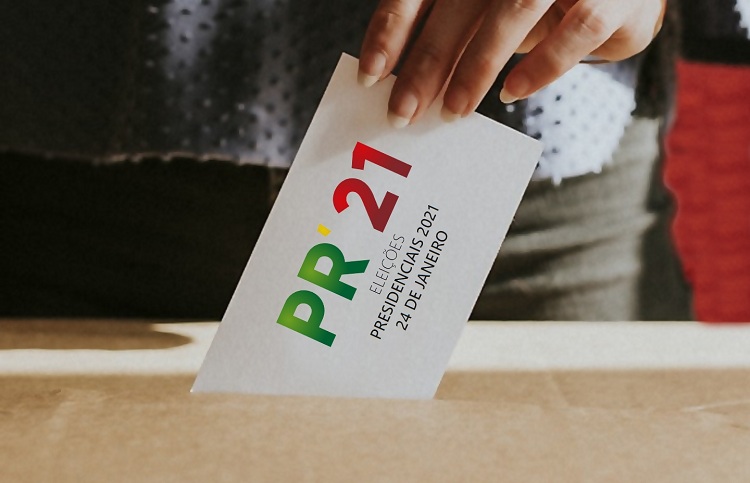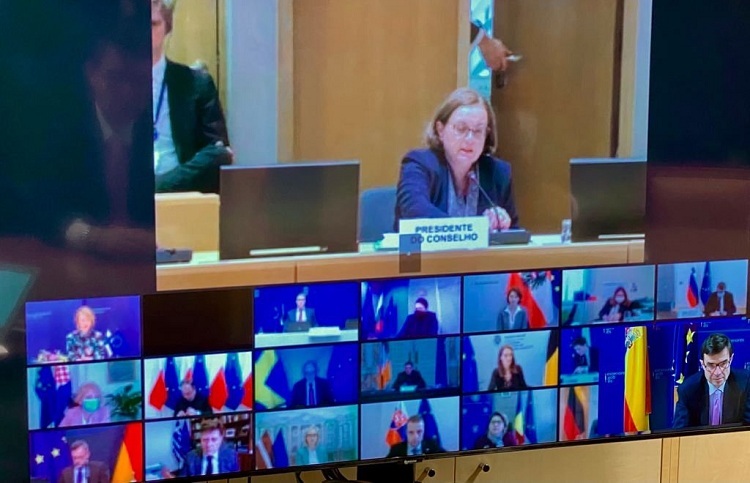Eduardo González
A total of 40,525 Portuguese citizens resident in Spain are called on to take part in the presidential election on 24 January, an election marked by the Portuguese presidency of the EU Council and the outbreak of the third wave of the pandemic, which has forced the Lisbon government to decree general confinement throughout the country.
The total number of voters for the presidential election is 10,865,010, according to official figures. There are 9,314,947 voters living in Portugal and a total of 1,550,063 in the Diaspora. In the case of Spain, the census of Portuguese citizens over the age of 18 and therefore with the right to vote is 40,525 people, according to data from the Portuguese Embassy in Madrid. This number is much lower than the total number of Portuguese residents in our country, which exceeds 109,000, according to data from 2019.
The final stage of the election will coincide with the declaration of general confinement in Portugal as a result of the COVID-19 pandemic, which began last Friday and will force citizens to remain in their homes, with some exceptions. One of those exceptions will be precisely the freedom of movement to go and vote in next Sunday’s presidential elections. Despite the fact that more than 250,000 people have asked for early voting to alleviate mobility problems, a strong abstention is expected in these elections.
Sunday’s presidential election will be the tenth since 1976, when António Ramalho Eanes was elected, the first president of the democracy since the fall of the dictatorship and under whose mandate the current Constitution was promulgated. Presidential elections are held every five years and require a majority of more than 50% of the vote to win in the first round. Otherwise, the top two candidates compete in a run-off election.
The top favourite in these presidential election is the current president, Marcelo Rebelo de Sousa (of the centre-right PSD and supported by the Christian Democrats of CDS-PP), to whom the polls award a second five-year term with almost 60 percent of the votes already in the first round. Other candidates are Marisa Matias (supported by the Bloco de Esquerda), Tiago Mayan Gonçalves (Iniciativa Liberal), André Ventura (Chega), Vitorino Silva (popularly known as Tino de Rans and candidate for Reagir Incluir Reciclar, RIR), João Ferreira (PCP and PEV) and Ana Gomes (PAN and Livre).
Portuguese people living abroad, including obviously those living in Spain, will vote in person at their country’s embassies and consulates between 23 and 24 January. In the case of Spain, the ballot boxes will be installed in the Consular Section of the Embassy in Madrid for voters from the capital (12,130 voters), Salamanca (35), León (1,653) and San Sebastián (139). Ballot boxes will also be installed at the Honorary Consulate in Bilbao (3,118 voters), the General Consulate in Barcelona (11,787 voters from Catalonia, Valencia, Aragon, Murcia and the Balearic Islands), the General Consulate in Seville (5,128 voters from Andalusia, Ceuta and Melilla and 26 from Extremadura) and the Vice-Consulate in Vigo (6,509 voters).
In a message to the Portuguese community living in Spain, the Portuguese ambassador in Madrid, João Mira Gomes, assured his fellow citizens on 12 January that “the pandemic that is plaguing us is not suspending democracy, nor is it being suspended by the consequences of the Filomena storm”. “For this reason,” continued the ambassador, “all consular posts are open and operational so that voters, both residents and those temporarily in the territory of those countries, can vote, provided they meet the requirements of the Electoral Law”.







